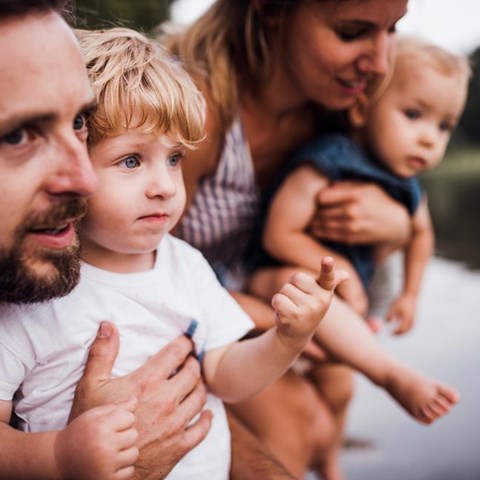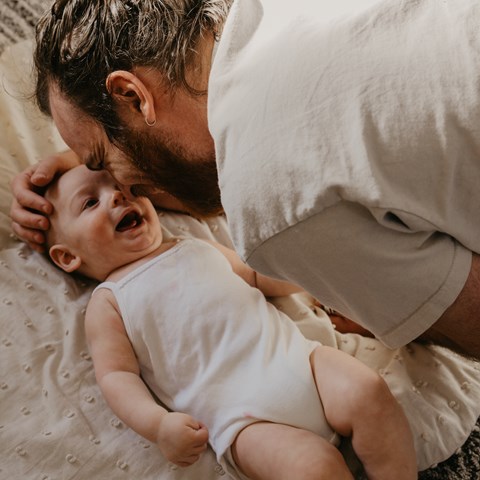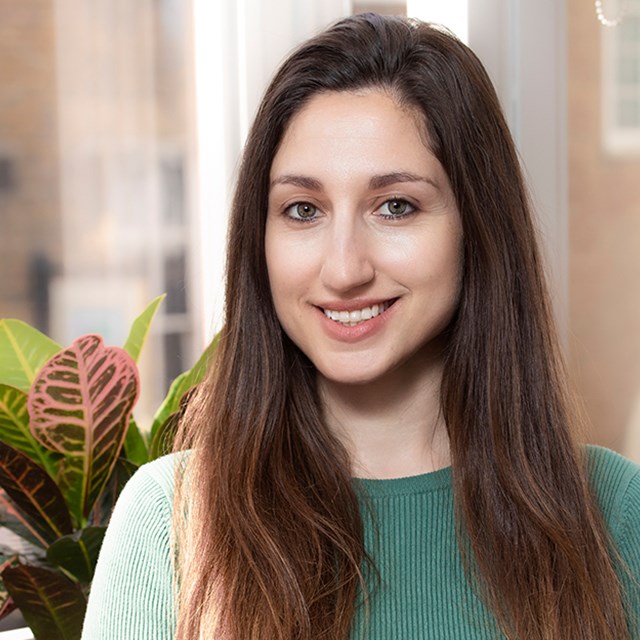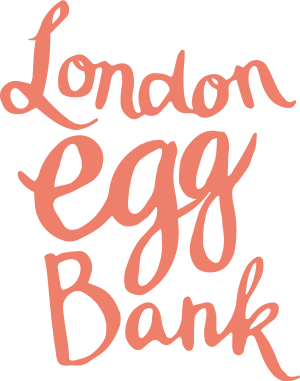Choosing an egg donor is one of the most critical and personal decisions prospective parents can make. It involves a blend of emotional, ethical, and practical considerations. Working with recipients for over decade we developed this guideline to help future parents navigate this thoughtful decision making and assist them with finding the right donor. We aimed to provide a thorough understanding of the process and useful criteria for selecting an egg donor to help ensure the best possible outcome for your family.
Understanding the Basics
Before diving into the egg donor selection process, it’s essential to understand the basics of egg donation. Egg donation is a procedure where a woman (the donor) provides eggs to another person or couple (the recipients) to help them conceive. The donor undergoes a medical procedure to retrieve her eggs, which are then fertilized with sperm from the recipient’s partner or a sperm donor. The resulting embryos are implanted into the recipient's uterus.
Why Choose Egg Donation?
There are several reasons why individuals or couples might opt for egg donation:
- Medical Conditions: Some women cannot produce viable eggs due to medical conditions such as premature ovarian failure, genetic disorders, or previous medical treatments like chemotherapy.
- Advanced Maternal Age: Older women may have a decreased number and quality of eggs, making egg donation a viable option.
- Same-Sex Couples: Male same-sex couples and single men who wish to have biological children need an egg donor.
- Repeated IVF Failure: Couples who have undergone multiple unsuccessful IVF treatments with their own eggs often consider egg donation.
Types of Egg Donors
There are three primary types of egg donors:
- Known Egg Donors: These are often friends or family members who agree to donate their eggs. This type of donation can provide emotional comfort but may also complicate personal relationships.
- Anonymous Egg Donors: These donors are unknown to the recipient and donor-conceived child. They typically donate through an egg donation agency or overseas fertility clinic.
- ID-release Egg Donors: These donors remain anonymous to the recipient but provide some identifying information to the donor-conceived child once they reach a certain age.
Anonymous vs. Identity-Release Egg Donors
The choice between anonymous and identity-release donors is significant and often dictated by country-specific regulations:
- Anonymous Donors: In countries like Spain, Greece, Cyprus or the Czech Republic, donors remain anonymous, and their identities are never disclosed to the recipients or the resulting child, ensuring total privacy during the process.
- Identity-Release Donors: In countries like the UK or Australia, donors must agree to allow their identity to be released to the child once they reach a certain age (usually 18 years old).
The ID-release option supports the psychological well-being of donor-conceived children by providing them the opportunity to know their genetic origins, which can be crucial for their sense of identity and belonging. Studies indicate that transparency regarding donor origins can enhance the child's mental health and reduce potential identity issues in adulthood.
Egg Donor Motivation and Compensation
Understanding the motivations behind egg donation and the compensation structure in different countries can help in making an informed decision:
- Altruistic Egg Donation: In countries like the UK, egg donation is often altruistic, with donors receiving only reimbursement for expenses rather than significant financial compensation.
- Compensated Egg Donation: In the United States, Spain, and several other countries, donors receive substantial compensation for their time and effort, which can serve as a motivating factor. Compensation varies widely and can be of fixed regulated value or individual based on donor’s desired characteristics, but generally reflects the invasiveness and time commitment of the process.
Fresh or Frozen Egg Donors
Another important consideration is whether to use fresh or frozen donor eggs:
- Fresh Donor Eggs:
Involves synchronizing the donor's cycle with the recipient's, which can be more complex and time-consuming but may offer slightly higher success rates. Fresh cycles tend to be more expensive due to the synchronization and immediate use of the eggs.
- Frozen Donor Eggs:
These are retrieved and then frozen for future use, providing more flexibility in timing and generally lower costs. Advances in freezing technology have made frozen eggs nearly as effective as fresh ones.
Egg Donor Screening and Regulation
The screening process for egg donors is crucial to ensure the health and suitability of the donor. The regulation and rigor of this process can vary significantly:
- Regulated Screening: In countries like the UK, egg donors undergo a thorough screening process that includes medical, psychological, and genetic testing. These regulations ensure that only healthy and suitable candidates donate.
- Less Regulated Screening: In some countries, the screening process may be less rigorous or not as well-regulated, which can increase the risk of complications or issues with the donated eggs. It's essential to choose a reputable clinic that adheres to international standards.
Choosing Your Egg Donor vs. Clinic Matching
Whether you can choose your donor or will be matched by the clinic can depend on the country and the specific clinic’s donor’s availability:
- Choosing Your Donor: In some countries, such as the United Kingdom, prospective parents have the freedom to review detailed profiles and select their donor based on personal criteria. Agencies and clinics provide comprehensive profiles including many non-identifiable information about donor like their physical characteristics, medical history, education, and personal interests.
- Clinic Matching: In other countries, like certain parts of Europe, clinics may match donors to recipients based on medical genetic and physical compatibility. This method can reduce the time and emotional stress involved in the selection process, but it offers less personal control over the choice.
Steps in Choosing an Egg Donor
1. Define Your Priorities and Criteria
When faced with many potential donors, it might help to make a list of what you are looking for and to narrow down the search based on what is essential and what is simply a nice-to-have. As you go through the process, you might find your priorities changing from when you started. This is all part of the decision-making process and will help to ensure you find the best match for you. Narrowing your selection too much from the start risks missing donors who might surprisingly be a better fit once you read their full profile. Consider the following factors:
- Physical Characteristics: Some recipients prefer a donor who resembles them or their partner in terms of ethnicity, height, eye colour, hair colour, and overall appearance.
- Educational Background: Some prospective parents place importance on the donor’s educational achievements and IQ.
- Personality and Interests: Traits such as hobbies, talents, and personality can also be significant, as they may influence the child’s future development.
- Health and Lifestyle: A donor’s health and lifestyle choices, including diet, exercise habits, are crucial for ensuring the best possible outcomes.
2. Consider Physical Characteristics
Many people start their donor search by seeking someone with a similar appearance, considering criteria like height, weight, eye and hair colour, and skin tone. While you might hope your child will inherit these physical traits, there's no guarantee.
Physical traits are inherited from the DNA of the egg and sperm donors, not from the birth mother. Since the DNA from the egg and sperm combines and recombines, a child might resemble one parent, both parents, or neither—it's not uncommon to see a child who looks different from their parents.
In egg donation, a child's DNA comes from the egg and sperm donors, not the recipient mother. However, the uterine environment significantly influences the baby's development through epigenetics, which provide crucial instructions for DNA functionality. Research shows that birth mothers can impact their baby's metabolism and brain development during pregnancy. Prioritizing health before and during pregnancy is essential for passing on health benefits to the child.
While conception begins with an egg and sperm, motherhood starts in the womb, and a woman's body plays a vital role in shaping a child's development even before pregnancy.
3. Assess Personality and Interests
A similar personality, outlook on life, education levels, interests, and hobbies can be other routes to finding the right donor. Some people look for similarities, while others consciously choose an egg donor who is different. Each donor profile includes a statement about the type of person the donor is, based on what the donor has shared and what the clinic's impression is of them.
4. Review the Egg Donor's Health
Ensure that the donor has been thoroughly screened in line with regulatory compliance requirements, including medical, psychological, and genetic assessments.
5. Use Intuition, Insights from others, and Support Services
Finding the right donor can often come down to a 'feeling.' Utilize the support services provided by the clinic or agency, such as counselling, to help address emotional and psychological aspects of the decision. Insights from other donor eggs patients can also help, read our blog here. In the end, your intuition about a donor is crucial.
6. Making the Final Decision
- Take Your Time: Making this decision requires careful consideration. Don’t rush the process.
- Ask for Support: Utilise the support services provided by the clinic or agency. Counsellors can help address emotional and psychological aspects of the decision.
- Follow Your Intuition: Ultimately, your feelings and instincts about a donor are important. Choose someone you feel good about.
Do your research, ask questions, and follow your intuition, and with the choice made, you’ll be in a good position to take the next step on the journey to creating or completing your family.
As the UK largest egg bank, we provide a large selection of frozen donor eggs, searchable 24/7 on our online database and available immediately

Jane’s Story
"The team provided us with gentle guiding support throughout the process. They allowed us to take things at our own pace and met us several times to talk things through."
Richard and Emma’s Story
"There was a good selection of donors at London Egg Bank, and we were lucky enough to find a donor who not only managed to match well but also genuinely appeared to want to help couples in our situation."
Matching and Relationship Manager. Annabel has 6 years of experience, working with egg recipients to find the best donor for their treatment.
